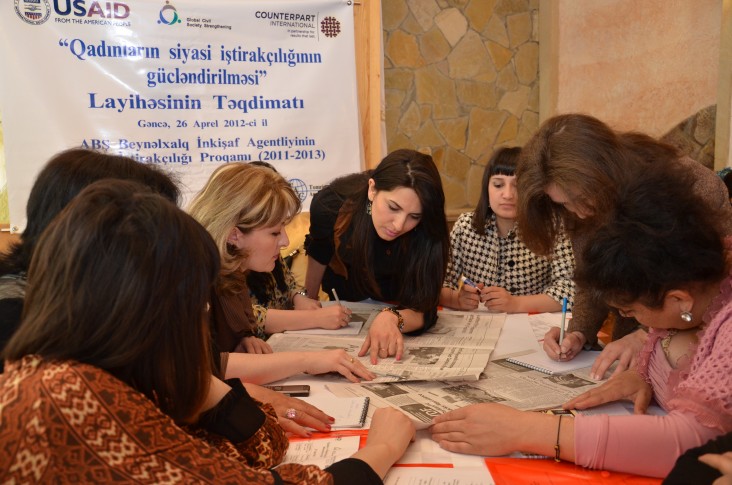Speeches Shim
The Republic of Azerbaijan regained its independence in 1991 with the fall of the Soviet Union. Shortly thereafter, USAID began implementing humanitarian assistance activities in the country. U.S. humanitarian programs in Azerbaijan were specifically designed to assist over 800,000 internally displaced people (IDPs), refugees, and other vulnerable populations who fled the conflict in and around the Nagono-Karabagh region. The programs also focused on community development, health and economic opportunities, and support services, including training and business management consultations for vulnerable populations. Other programs included U.S.-funded health clinics to serve needy populations and the provision of humanitarian commodities that included medicines, pharmaceuticals, medical equipment and supplies, emergency shelter items, food, and clothing. USAID also provided food-aid to IDPs and other vulnerable groups through the World Food Program's relief operations.

While the early USAID activities in Azerbaijan focused entirely on humanitarian relief efforts, in 1998, USAID began the transition of USAID programs from focusing on humanitarian assistance and relief programs towards the broader economic, social and political development that targeted the general population. However, integrating refugees and IDPs into the greater social fabric of Azerbaijan remained one of the main long-term goals of USAID in Azerbaijan. IDPs as a part of general public are benefiting from USAID programs in the areas of economic growth, community development and healthcare.
The U.S. government’s longstanding development partnership with the Government of Azerbaijan has evolved. It has matured from its initial focus largely on humanitarian assistance in the early 1990’s to one where we jointly plan and co-finance our activities. Today the partnership is one of equals, and focused on long-term development. In the coming years, we will build on the strong foundations of our relationship and will broaden and deepen our collaboration, and strive to leave behind a sustainable legacy of our joint efforts.
Currently, USAID is implementing projects in governance and economic growth areas. By expanding knowledge and awareness of democratic principles and by developing the legal framework to support democratic processes and practices, USAID activities play a critical role in laying the foundation for lasting democracy in Azerbaijan. USAID has built positive relationships with the government agencies which have allowed the mission to play a leading role in informing the development of the systems, laws, curricula, and policies required to shift from outdated, ineffective health care practices to evidence-based medicine. USAID works to strengthen the competitiveness of the selected non-oil and gas sectors in Azerbaijan by partnering with key local businesses and associations to address barriers to growth and increasing the quantity and quality of products they produce. With USAID assistance, the government has begun to improve the enabling environment for private sector businesses, most noticeably in the areas of registering and starting businesses and streamlining procedures at the customs office.
Since 1992, USAID has provided over 370 million USD in technical assistance and training to effect positive, lasting change within the country’s institutions and the lives of its people. USAID programs cooperate with ministries, governmental agencies, non-governmental organizations, businesses, and communities to improve laws, promote human and political rights, engage citizens, expand jobs, increase incomes, and improve the health and quality of life of Azerbaijan’s people.


Comment
Make a general inquiry or suggest an improvement.